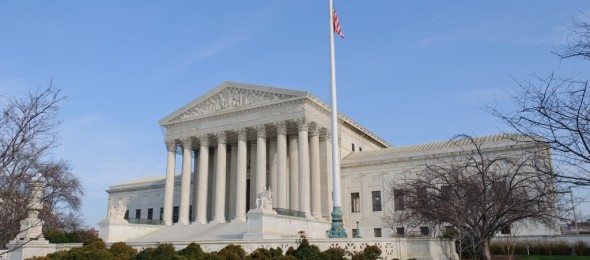In October, the United States Supreme Court will hear oral argument in the consolidated cases of National Labor Relations Board v. Murphy Oil USA, No. 16-307 (5th Cir., October 26, 2015), Epic Systems Corp. v. Lewis, No. 16-285 (7th Cir., May 26, 2016), and Ernst & Young LLP v. Morris, No. 16-300 (9th Cir., August 22, 2016). The cases present a split among circuits regarding whether a collective action ban included in an employment contract violates the National Labor Relations Act (“NLRA”).
Last week, the National Labor Relations Board (“NLRB”) filed a responsive brief with the Supreme Court in Murphy Oil. In the case, the Fifth Circuit rejected the NLRB’s efforts to ban class action arbitration waivers in employment agreements. The Board maintains in its brief that arbitration agreements prohibiting employees from engaging in collective action violate Section 7 of the NLRA. Additionally, the NLRB argues the judgment of the court of appeals in the Murphy Oil case should be reversed because:
I. ARBITRATION AGREEMENTS THAT BAR EMPLOYEES FROM CONCERTEDLY PURSUING WORK-RELATED LEGAL CLAIMS ARE ILLEGAL UNDER THE NLRA
A. Section 157 of the NLRA Guarantees Statutory Employees the Right To Act Concertedly for “Mutual Aid or Protection” by Pursuing Work-Related Claims Using Generally Available Collective Litigation Procedures
B. Section 158(a)(1) of the NLRA Proscribes Individual Contracts That Prospectively Waive Employees’ Section 157 Rights
C. Contractual Restrictions of Section 157 Rights Violate Section 158(a)(1) and Are Unenforceable under the NLRA and General Contract Law
II. THE FAA DOES NOT REQUIRE ENFORCEMENT OF ARBITRATION AGREEMENTS THAT VIOLATE THE NLRA
A. The FAA Places Arbitration Agreements on an “Equal Footing” with Other Contracts, Subject to General Contract Defenses
B. Arbitration Agreements Containing Concerted-Action Waivers Violate the NLRA and Are Therefore Unenforceable Pursuant to the FAA’s Saving Clause
1. The Board’s rule fits within the saving clause because it is neutral with respect to arbitration
2. Concepcion does not dictate rejection of the Board’s rule
3. The Employers’ remaining saving clause arguments violate the FAA’s equal-footing principle
C. None of the Court’s FAA Cases Require Rejection of the Board’s Rule
1. The congressional-command test is not the sole exception to enforcement in cases involving another federal statute
2. The Court has never considered the validity of an arbitration agreement with a concerted-action waiver that violates a federal statute
D. Private Contract Cannot Nullify a Federal Statute
The NLRB filing was submitted in response to a new Department of Justice (“DOJ”) brief that was filed with the Supreme Court in June. Although the DOJ previously defended the NLRB’s position that class waivers included in an employer’s arbitration agreement violate the NLRA, the DOJ reached the opposite conclusion in its June filing. More information regarding the most recent DOJ brief is available in another Disputing blog post.
It will be interesting to see how the Supreme Court ultimately decides this issue!
Photo credit: photoverulam via Foter.com / CC BY-SA














